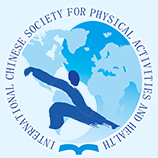Document Type
Abstract
Publication Date
12-1-2024
Abstract
Objective: In the realm of competitive sports, mental fatigue, as a prevalent negative psychological phenomenon, not only adversely affects athletes' immediate competitive performance, but also impedes their long-term career progression. This issue is particularly acute among table tennis athletes who endure persistent pressures and concerns. Presently, there is a burgeoning interest in investigating athletes' mental fatigue through the lens of positive psychological attributes. Notably, temperamental optimism fosters the development of positive cognitions and enhances psychological resilience. Similarly, cognitive reappraisal facilitates the augmentation of positive emotional experiences. Investigating the relationship between these variables and table tennis athletes' mental fatigue holds promise for innovating solutions to alleviate athletes' mental fatigue.
Methods: This study was comprised of two parts. In Experiment 1, a cross-sectional study was employed to investigate the inherent association between temperamental optimism and mental fatigue among table tennis athletes and to examine whether cognitive reappraisal moderates this relationship. Experiment 2 employed a longitudinal study; wherein experimental subjects were selected from athletes whose cognitive reappraisal scores fell below the average observed in Experiment 1. The experimental group participated in the cognitive reappraisal psychological counseling program, while the control group underwent the psychological knowledge psychological counseling program. Following an 8-week duration, a randomized controlled experiment was conducted to verify the moderating effect of cognitive reappraisal.
Results: Experiment 1 was a cross-sectional study. Experimental results showed that temperamental optimism could significantly and negatively predict the mental fatigue of table tennis athletes. Cognitive reappraisal could positively mediate the relationship between temperamental optimism and table tennis athletes' mental fatigue. Experiment 2 was a longitudinal study. The experimental results showed that after the 8-week experiment, there were significant differences in various dimensions between the experimental group and the control group.
Conclusion: This study revealed that as the level of cognitive reappraisal rose, the negative predictive impact of temperamental optimism on table tennis athletes' mental fatigue also escalated, and vice versa. In addition, cognitive reappraisal psychological counseling demonstrates promising intervention efficacy, confirming the moderating effect of cognitive reappraisal. Moving forward, leveraging positive psychology offers a prospective avenue to address negative psychological challenges in athletes.
DOI
https://doi.org/10.18122/ijpah.3.3.86.boisestate
Recommended Citation
Xie, Jingyi and Wang, Bin
(2024)
"A086: The Mechanisms of Mental Fatigue Among Table Tennis Athletes from the Perspective of Positive Psychology,"
International Journal of Physical Activity and Health: Vol. 3:
Iss.
3, Article 86.
DOI: https://doi.org/10.18122/ijpah.3.3.86.boisestate
Available at:
https://scholarworks.boisestate.edu/ijpah/vol3/iss3/86
Included in
Exercise Science Commons, Health and Physical Education Commons, Public Health Commons, Sports Studies Commons



